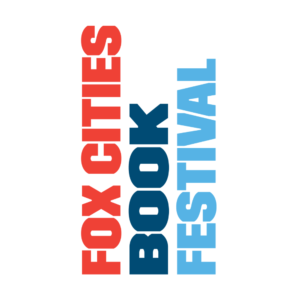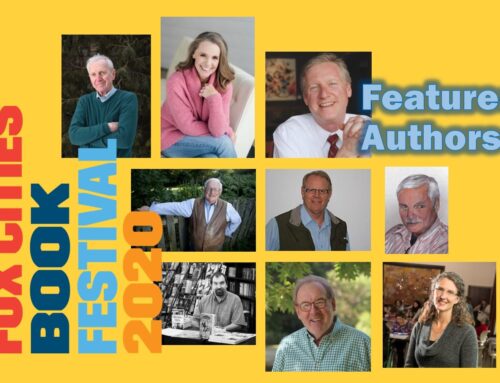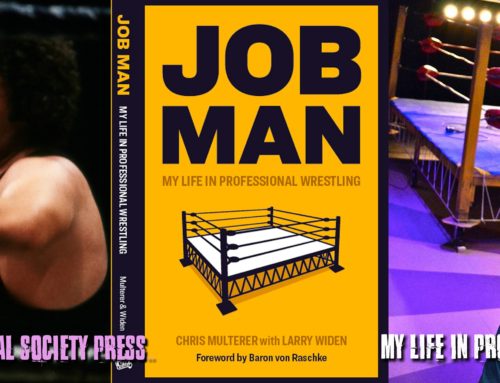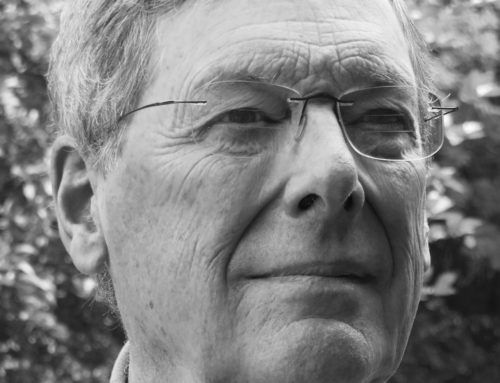 He was a tall white man from Appleton whose picture landed on the front pages of national newspapers after he was beaten in Montgomery, Alabama, in May 1961. Jim Zwerg had been a student at Beloit College and was one of many other Freedom Riders. Wisconsin author BJ Hollars interviewed Zwerg and many others for his new book The Road South: Rediscovering the Freedom Riders. Hollars is an associate professor of English at UW-Eau Claire. He’ll be speaking on October 12 at 1:30 pm at the James J. Siebers Memorial Library in Kimberly and on October 13 at 9 am at the Elisha D. Smith Public Library in Menasha.
He was a tall white man from Appleton whose picture landed on the front pages of national newspapers after he was beaten in Montgomery, Alabama, in May 1961. Jim Zwerg had been a student at Beloit College and was one of many other Freedom Riders. Wisconsin author BJ Hollars interviewed Zwerg and many others for his new book The Road South: Rediscovering the Freedom Riders. Hollars is an associate professor of English at UW-Eau Claire. He’ll be speaking on October 12 at 1:30 pm at the James J. Siebers Memorial Library in Kimberly and on October 13 at 9 am at the Elisha D. Smith Public Library in Menasha.
This year, BJ Hollars will read from his book The Road South: Personal Stories of the Freedom Riders. You may remember last year at the tenth annual Fox Cities Book Festival, Hollars talked about his previous book, Flock Together: A Love Affair with Extinct Birds. He is the author of a dozen books. As a writer, he tackles topics that range from race relations to the extinction of birds and our relationships with our pets.
Wondering how he finds the hidden histories that he shares? Well, he loves surprises, as he explains in this interview with the Fox Cities Book Festival.
Let’s start with a broad question. How do you decide what story you want to tell?
BJ Hollars: You never know the story you want to tell until you start writing and researching. Every book changes as it goes. It’s part of the fun. Robert Frost is quoted as saying, “No surprise in the writer, no surprise in the reader.” If that’s true, then my readers can be assured they’re always in for a surprise! When writing about subjects as large as civil rights, or extinction, or history, there’s never a simple beginning and end point. As writers, we all have to make the difficult choice of deciding what is absolutely essential to relay the story to the audience. It’s often excruciating. If the pages (and the readers’ attention spans) were endless, I’d probably spend a lifetime on a single slice of a story and still never tell it adequately. Thankfully, publishers and readers won’t stand for that, which is probably to my benefit, too. But to speak to the broader question, I write about things that scare me. If it keeps me up at night, then I know I’ve found the right topic.
When you’re writing nonfiction, what imaginative processes go into your work?
For me, it depends on how broadly you’re willing to embrace the term “creative nonfiction.” If I’m writing about myself, I’m more willing to take a liberty or two. I don’t change the facts, obviously, but I’ll allow myself more creative license in the name of creative nonfiction. Yet when writing a book like The Road South, I leave my creative license at home. Those stories belong to other people. Mostly, I just try to stay out of the way and let the participants share their stories directly. Having said that, nonfiction writers still have quite a few creative tools at their disposal. Sometimes I’ll call up the National Climactic Data Center so I can figure out which direction the wind was blowing on a particular day so I can incorporate that detail into the scene. This is just one example, of course. There are plenty of ways to use the facts and record-keeping to spur the imagination.
 What three books do you wish you’d written?
What three books do you wish you’d written?
For very different reasons, I’ve always loved Ray Bradbury’s Dandelion Wine, Nathaniel Philbrick’s In the Heart of the Sea. Bradbury taught me the power of nostalgia and Philbrick taught me the power of historical nonfiction. As for essays, Max Garland’s “Joy On A Winter’s Day,” and for poetry, Allison Goldin Loomis’s “Learning to Sleep.” I’m fortunate to call both of them colleagues and friends.
When you look at a historical/political story like what you’ll be sharing when you read from The Road South, how much do you look for parallels to our contemporary context?
Sometimes I’m a little overt in drawing connections, other times I leave it to the reader. In The Road South, however, I think the parallels are unmissable. The bottom line is this: hate never wins when love fights back. The Freedom Riders taught me this again and again.





